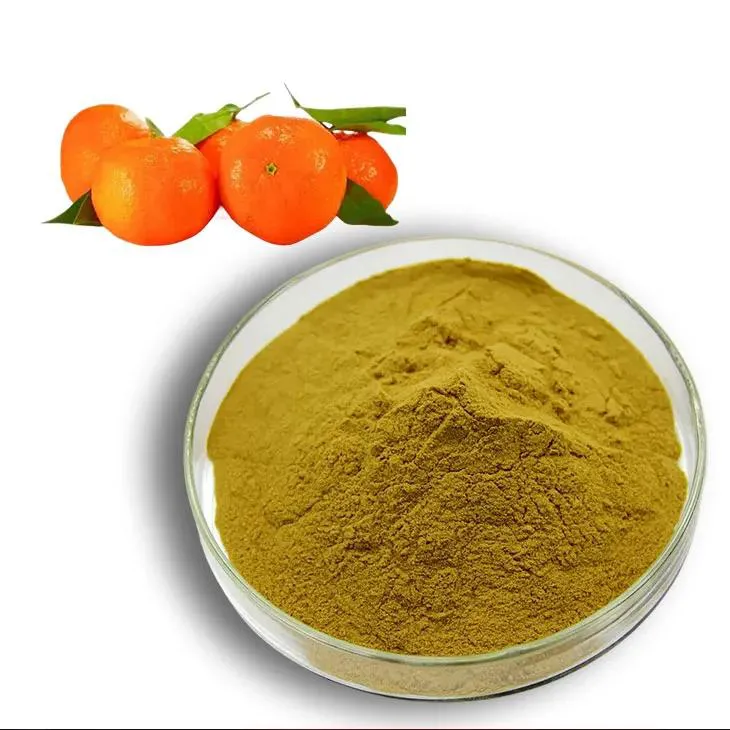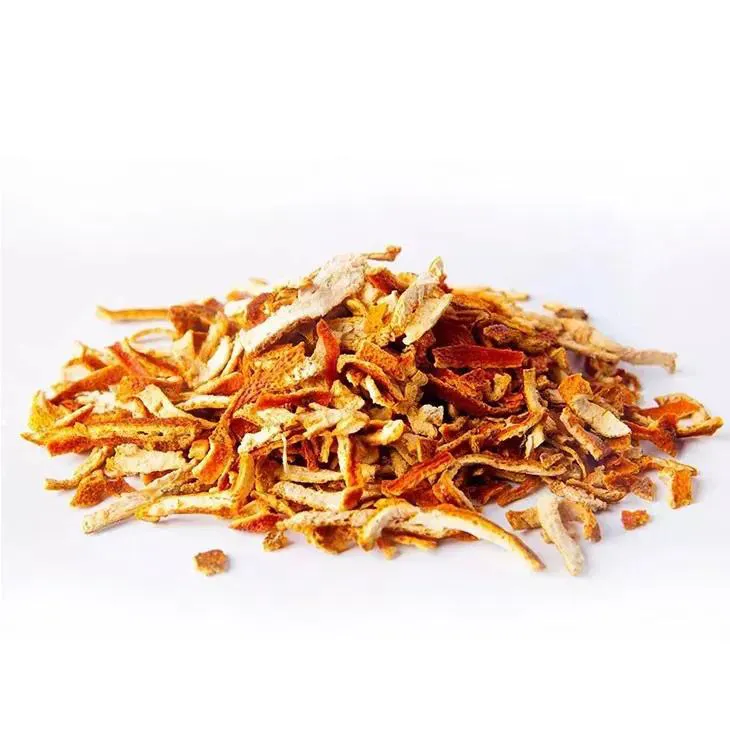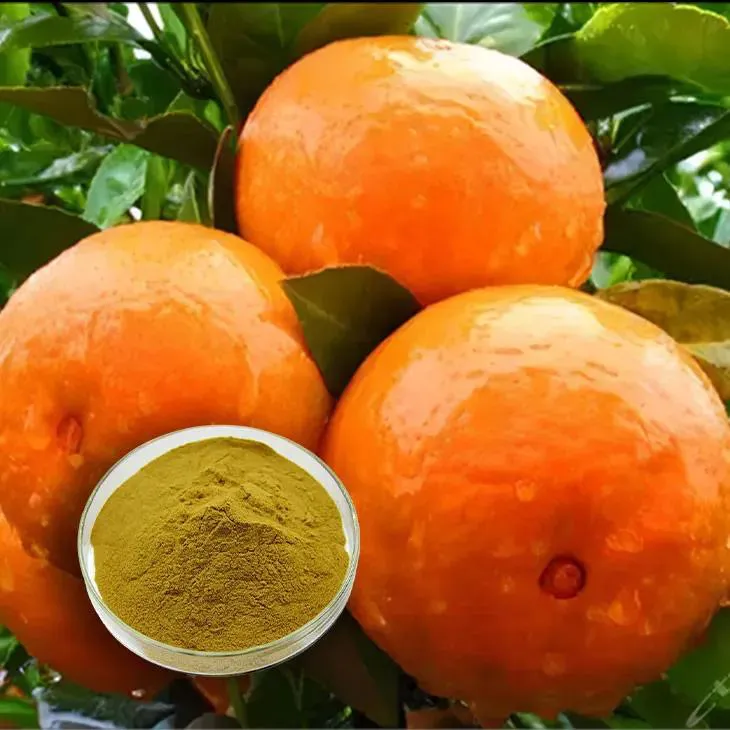- 0086-571-85302990
- sales@greenskybio.com
Benefits of Citrus Bioflavonoids in Cattle Feed.
2024-11-12

1. Introduction
Cattle farming is an important aspect of the agricultural industry, and ensuring the health and productivity of cattle is crucial. In recent years, there has been growing interest in the use of natural additives in cattle feed. One such additive that has shown great potential is Citrus bioflavonoids. These bioactive compounds, which are naturally present in citrus fruits, offer a multifaceted advantage when included in cattle feed. This article will explore the various benefits of Citrus bioflavonoids in cattle feed, including their impact on the immune system, meat and milk quality, and antioxidant protection.

2. Enhancement of the Immune System
Citrus bioflavonoids play a significant role in enhancing the immune system of cattle. The immune system of cattle is constantly exposed to various pathogens, such as bacteria, viruses, and parasites. A strong immune system is essential for the cattle to resist these diseases and maintain good health.
Bioflavonoids have immunomodulatory properties. They can interact with the immune cells in the body of cattle, such as macrophages and lymphocytes. Macrophages are the first line of defense against pathogens. Citrus bioflavonoids can stimulate macrophages to become more active in engulfing and destroying invading pathogens.
Lymphocytes, on the other hand, are responsible for the specific immune response. Bioflavonoids can influence the function of lymphocytes, for example, by enhancing the production of antibodies. Antibodies are proteins that can recognize and bind to specific antigens on the surface of pathogens, marking them for destruction by other immune cells.
In addition, citrus bioflavonoids can also regulate the production of cytokines. Cytokines are small proteins that play a crucial role in cell - to - cell communication within the immune system. By regulating cytokine production, bioflavonoids can help to balance the immune response, preventing excessive inflammation while still effectively fighting off infections.

3. Improvement of Meat and Milk Quality
The addition of citrus bioflavonoids to cattle feed can have a positive impact on the quality of meat and milk products. This is mainly due to their influence on nutrient metabolism in cattle.
3.1 Meat Quality
In terms of meat quality, bioflavonoids can affect the composition of muscle tissue. They can influence the deposition of proteins and fats in the muscles. Protein deposition is important for muscle growth and development, which directly affects the meat yield and texture. Cattle fed with bioflavonoid - supplemented feed may have more lean muscle mass, which is desirable for consumers.
Moreover, bioflavonoids can also affect the flavor and juiciness of meat. They may influence the production of certain flavor - related compounds during muscle metabolism. Additionally, they can improve the water - holding capacity of meat, which contributes to its juiciness.
3.2 Milk Quality
When it comes to milk quality, citrus bioflavonoids can enhance the nutritional content of milk. For example, they can increase the levels of certain vitamins and minerals in milk. This is beneficial for consumers, especially those who rely on milk as an important source of nutrition.
Bioflavonoids can also affect the composition of milk fat. They may lead to a more favorable fatty acid profile in milk, such as an increase in the proportion of unsaturated fatty acids. Unsaturated fatty acids are considered healthier for human consumption.
Furthermore, the addition of bioflavonoids to cattle feed may improve the shelf - life of milk. This could be due to their antioxidant properties, which can prevent the oxidation of lipids and other components in milk, reducing spoilage.

4. Antioxidant Properties
Citrus bioflavonoids possess antioxidant properties that are highly beneficial for cattle. Oxidative stress is a common problem in cattle, which can be caused by various factors such as environmental stressors, poor diet, and infections.
Oxidative stress occurs when there is an imbalance between the production of reactive oxygen species (ROS) and the antioxidant defense system in the body. ROS can cause damage to cells, including DNA damage, lipid peroxidation, and protein oxidation. This can lead to various health problems in cattle, such as reduced growth performance, weakened immune system, and decreased fertility.
Citrus bioflavonoids can act as antioxidants by scavenging ROS. They can donate electrons to neutralize free radicals, preventing them from causing oxidative damage. This helps to protect the cells of cattle from oxidative stress.
In addition to scavenging ROS, bioflavonoids can also enhance the antioxidant defense system in cattle. They can up - regulate the expression of antioxidant enzymes, such as superoxide dismutase (SOD), catalase (CAT), and glutathione peroxidase (GSH - Px). These enzymes play important roles in breaking down ROS and maintaining the redox balance in the body.
5. Other Potential Benefits
Besides the well - known benefits mentioned above, citrus bioflavonoids may offer other potential advantages in cattle feed.
- They may have anti - inflammatory properties. Inflammation is a natural response of the body to injury or infection, but chronic inflammation can be harmful. Bioflavonoids may help to reduce excessive inflammation in cattle, promoting better health and performance.
- Citrus bioflavonoids could potentially improve the digestibility of feed. By influencing the gut microbiota or directly affecting the digestive enzymes, they may enhance the absorption of nutrients from the feed, which can lead to better growth and productivity of cattle.
- There is also some evidence suggesting that bioflavonoids may have a positive impact on the reproductive performance of cattle. They may affect hormonal balance or improve the quality of gametes, although more research is needed in this area.
6. Conclusion
In conclusion, citrus bioflavonoids offer a range of benefits when added to cattle feed. They enhance the immune system of cattle, making them more resistant to diseases. They also improve the quality of meat and milk products through their influence on nutrient metabolism. Moreover, their antioxidant properties protect cattle cells from oxidative damage. Additionally, there are potential other benefits such as anti - inflammatory effects, improved digestibility, and possible positive impacts on reproductive performance. As the demand for high - quality meat and dairy products continues to grow, the use of citrus bioflavonoids in cattle feed could be a promising strategy to improve the overall health and productivity of cattle in the agricultural industry. However, more research is still needed to fully understand the mechanisms of action and to optimize the dosage and application of citrus bioflavonoids in cattle feed.
FAQ:
What are citrus bioflavonoids?
Citrus bioflavonoids are a group of plant - derived compounds found in citrus fruits. They are secondary metabolites and have diverse chemical structures and biological activities.
How do citrus bioflavonoids enhance the immune system of cattle?
Citrus bioflavonoids can stimulate the production of immune cells in cattle. They may also regulate immune - related signaling pathways, which helps the cattle's immune system to better recognize and respond to pathogens, thus enhancing overall immunity.
Can citrus bioflavonoids directly improve the taste of meat and milk?
While citrus bioflavonoids do not directly improve the taste. By improving the nutrient metabolism, they can influence the composition of meat and milk, such as fat and protein content, which may indirectly affect the quality and potentially the taste perceived by consumers.
What is the mechanism behind the antioxidant properties of citrus bioflavonoids in cattle?
Citrus bioflavonoids can scavenge free radicals in cattle cells. They can also up - regulate antioxidant enzymes, which work together to prevent oxidative damage caused by reactive oxygen species in cells.
How much citrus bioflavonoids should be added to cattle feed?
The optimal amount of citrus bioflavonoids to be added to cattle feed depends on various factors such as the age, weight, and health status of the cattle. Generally, it needs to be determined through scientific research and field trials. Too little may not show the desired effects, while too much may cause potential negative impacts.
Related literature
- Title: The Role of Bioflavonoids in Livestock Nutrition"
- Title: "Citrus Bioflavonoids: Their Impact on Animal Health and Product Quality"
- Title: "Beneficial Effects of Plant - derived Compounds in Cattle Feed: Focus on Bioflavonoids"
- ▶ Hesperidin
- ▶ Citrus Bioflavonoids
- ▶ Plant Extract
- ▶ lycopene
- ▶ Diosmin
- ▶ Grape seed extract
- ▶ Sea buckthorn Juice Powder
- ▶ Fruit Juice Powder
- ▶ Hops Extract
- ▶ Artichoke Extract
- ▶ Mushroom extract
- ▶ Astaxanthin
- ▶ Green Tea Extract
- ▶ Curcumin
- ▶ Horse Chestnut Extract
- ▶ Other Product
- ▶ Boswellia Serrata Extract
- ▶ Resveratrol
- ▶ Marigold Extract
- ▶ Grape Leaf Extract
- ▶ New Product
- ▶ Aminolevulinic acid
- ▶ Cranberry Extract
- ▶ Red Yeast Rice
- ▶ Red Wine Extract
-
Marigold Extract
2024-11-12
-
Horse Chestnut Extract
2024-11-12
-
Citrus Aurantium Extract
2024-11-12
-
Tongkat Ali Extract Powder
2024-11-12
-
Withania Somnifera Extract
2024-11-12
-
Buckthorn bark extract
2024-11-12
-
Kelp Extract Powder
2024-11-12
-
Bitter Melon Extract
2024-11-12
-
Hesperidin
2024-11-12
-
Dandelion Root Extract
2024-11-12





















